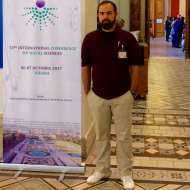A new GLO Discussion Paper finds that the competitive nature of politics has a strong negative effect on women’s and homosexuals’ interest to run for a political office, but not on men’s and heterosexuals’ interest, hence significantly increasing the gender and sexual gap in leadership ambition.
GLO Discussion Paper No. 1187, 2022
Sexual identity and Gender Gap in Leadership. A political intention experiment – Download PDF
by Mourelatos, Evangelos & Krimpas, George & Giotopoulos, Konstantinos
GLO Fellow Evangelos Mourelatos

Author Abstract: The underrepresentation of women and homosexuals in leadership positions has been well documented, but the grounds for this need further investigation. We conduct a field and an online experiment to test a prominent theory about the sources of the sexual and gender gap in political leadership ambition: women’s and homosexuals’ higher aversion to engage to competitive environments. Within an experimental political environment as a context for our research, we employ two distinct subject sample pools – highly politically active individuals and workers from an online labor market. By controlling for a variety of internal and external factors and preference-based indicators, we establish that there are fundamental sexual and gender behavioral differences, stemming from differences in underlying psychological abilities and differences due to the nature of electoral competition. We find that priming individuals to consider the competitive nature of politics has a strong negative effect on women’s and homosexuals’ interest to run for a political office, but not on men’s and heterosexuals’ interest, hence significantly increasing the gender and sexual gap in leadership ambition. While on the online experiment the gender gap holds, surprisingly, we found that homosexuals’ intention to participate in politics follows the opposite course.
Featured image: dainis-graveris-unsplash
FORTHCOMING:
Vol. 36, Issue 1, January 2023: Meet the authors of 16 articles of this issue on December 1, 2022 during the GLO Global Conference 2022.
PUBLISHED
Vol. 35, Issue 4, October 2022: Journal of Population Economics (JOPE): 15 articles https://link.springer.com/journal/148/volumes-and-issues/35-4
CiteScore of JOPE moves up from 3.9 (2020) to 6.5 (2021). LINK
Similar, its Impact Factor is now 4.7 (2021) after 2.8 (2020)! LINK

GLO Discussion Papers are research and policy papers of the GLO Network which are widely circulated to encourage discussion. Provided in cooperation with EconStor, a service of the ZBW – Leibniz Information Centre for Economics, GLO Discussion Papers are among others listed in RePEc (see IDEAS, EconPapers). Complete list of all GLO DPs – downloadable for free.
The Global Labor Organization (GLO) is an independent, non-partisan and non-governmental organization that functions as an international network and virtual platform to stimulate global research, debate and collaboration.
Ends;

